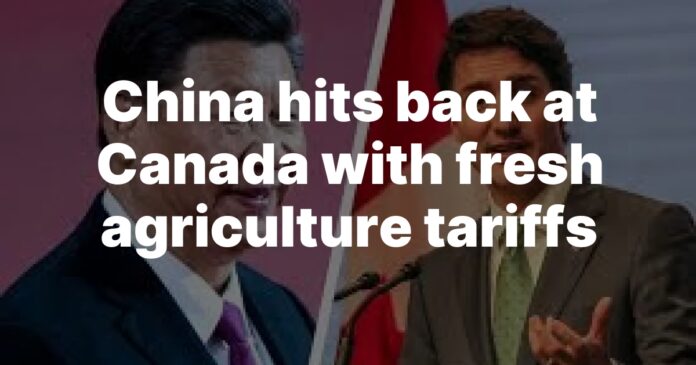China placed tariffs on more than $2.6 billion worth of Canadian food and agricultural products in response for Canada’s levies on steel and aluminum products and electric vehicles made in China.
Canada’s October import tariffs of 100% and 25% will be mirrored by the new charges, which are scheduled to go into force on March 20.
Significantly, since the investigation into anti-dumping practices on Canadian canola imports is still underway, China has not included canola in the levies, which may indicate an openness to future trade discussions.
Over $1 billion worth of Canadian rapeseed oil, oil cakes, and peas will be subject to a 100% levy as a result of the tariffs, while $1.6 billion worth of Canadian pork and aquatic products would be subject to a 25% duty.
As the nation’s commerce ministry handles numerous trade disputes, especially with the U.S. and EU, China’s answer, which has been delayed for months, is an example of strategic signaling. China’s ministry has called the levies unfair and protectionist, accusing Canada of breaking WTO regulations.
Following comparable measures by the US and EU, Canada levied duties on Chinese goods in October, sparking the start of the trade conflict between the two countries. China retaliated by opening an anti-dumping probe against Canadian imports of canola, which caused trade disruptions because China is a significant market for Canada’s canola exports.
Analysts believe that China’s decision to remove canola from the list may allow for further talks despite the additional tariffs.
The impending Canadian election, which is due on October 20, may potentially have an impact on China’s action. According to analysts, Beijing might be waiting for a change in Canada’s leadership, which could result in a new start for the two countries’ bilateral ties, similar to what has happened with Australia. Canada continues to be China’s second-largest trading partner, with $47 billion in exports in 2024.



















